Description
Addresses on the Gospel of Luke
by
H.A. Ironside
Table of Contents
Contents
Chapter 1 Its Theme And Author – Luke 1:1-4. 7
The Coming Forerunner – Luke 1:5-25. 14
The Annunciation – Luke 1:26-38. 23
The Magnificat – Luke 1:39-56. 30
The Promise Fulfilled – Luke 1:57-80. 34
Chapter 2 The Birth Of The Saviour – Luke 2:1-20. 43
The Presentation In The Temple – Luke 2:21-38. 51
The Boy Christ Among The Doctors – Luke 2:41-52. 57
Chapter 3 The Baptism Of Jesus – Luke 3:1-22. 66
The Genealogy Of Jesus – Luke 3:23-38. 74
Chapter 4 The Temptation Of Jesus – Luke 4:1-13. 84
“The Acceptable Year Of The Lord” – Luke 4:14-30. 92
Jesus At Capernaum – Luke 4:30-44. 100
Chapter 5 Fishers Of Men – Luke 5:1-11. 109
A Leper Cleansed – Luke 5:12-15. 117
Healing And Forgiveness – Luke 5:16-26. 122
The Call And Response Of Matthew – Luke 5:27-39. 127
Chapter 6 Jesus Rebukes Legality – Luke 6:1-11. 133
Jesus Commissions The Twelve – Luke 6:12-16. 137
Christ’s Ethical Teaching – Luke 6:17-26. 141
The Book Of The Golden Rule – Luke 6:27-38. 147
Secure And Insecure Foundations – Luke 6:39-49. 153
Chapter 7 Two Notable Miracles – Luke 7:1-18. 158
Christ’s Endorsement Of John The Baptist – Luke 7:19-35. 163
Christ And The Sinful Woman – Luke 7:36-50. 169
Chapter 8 The Sower And The Seed – Luke 8:1-15. 176
Shining For God – Luke 8:16-21. 183
Lord Of The Winds And Waves – Luke 8:22-25. 189
Christ Triumphs Over Demons – Luke 8:26-40. 194
Christ Triumphs Over Sickness And Death – Luke 8:41-56. 199
Chapter 9 The Mission Of The Twelve – Luke 9:1-17. 207
Peter’s Confession And True Discipleship – Luke 9:18-26. 213
The Kingdom In Embryo – Luke 9:27-36. 220
At The Foot Of The Mount – Luke 9:37-50. 226
Intolerance Rebuked; Faithfulness Enjoined – Luke 9:51-62. 233
Chapter 10 The Mission Of The Seventy – Luke 10:1-20. 242
The Mystery Of The Incarnation – Luke 10:21-24. 250
Self-Righteousness Exposed – Luke 10:25-27. 254
Service And Communion – Luke 10:38-42. 261
Chapter 11 Teaching On Prayer – Luke 11:1-13. 265
Misunderstanding Jesus – Luke 11:14-28. 272
Responsibility According To – Luke 11:29-36. 277
Searching Table-Talks – Luke 11:37-54. 284
Chapter 12 The Sin That Never Can Be Forgiven – Luke 12:1-12 292
The Sin And Danger Of Covetousness – Luke 12:13-21. 299
Living Without Anxiety – Luke 12:22-34. 304
Waiting For The Lord’s Return – Luke 12:35-48. 308
The Offence Of The Cross – Luke 12:49-59. 313
Chapter 13 A Call To National And Individual Repentance – Luke 13:1-9 319
Making Crooked People Straight – Luke 13:10-17. 324
Two Aspects Of The Kingdom Of God – Luke 13:18-21. 330
A Great Crisis – Luke 13:22-35. 335
Chapter 14 The Parable Of The Great Supper – Luke 14:1-24. 343
Counting The Cost – Luke 14:25-35. 348
Chapter 15 Lost Ones Found – Luke 15:1-32. 357
Chapter 16 The Unjust Steward – Luke 16:1-18. 368
Beyond The Veil – Luke 16:19-31. 374
Chapter 17 Subjection To Christ – Luke 17:1-10. 383
Where Are The Nine? – Luke 17:11-19. 387
Christ’s Second Advent – Luke 17:20-37. 394
Chapter 18 Importunate Prayer – Luke 18:1-17. 401
The Great Refusal – Luke 18:18-30. 406
Christ’s Answer To Faith’s Plea – Luke 18:31-43. 412
Chapter 19 Grace: What It Is And What It Does – Luke 19:1-10 419
When The King Returns To Reign – Luke 19:11-27. 424
Welcoming The King – Luke 19:28-48. 431
Chapter 20 The Parable Of The Vineyard – Luke 20:1-18. 437
Jesus Confounds His Questioners – Luke 20:21-47. 444
Chapter 21 Our Lord’s Great Prophetic Discourse – Luke 21:1-24 452
The Budding Fig-Tree – Luke 21:25-38. 459
Chapter 22 The Last Passover And The Institution Of The Lord’s Supper – Luke 22:1-38 466
The Agony In Gethsemane – Luke 22:39-53. 475
Peter’s Failure And Repentance – Luke 22:54-62. 479
Jesus Before The Priests – Luke 22:63-71. 485
Chapter 23 Pilate’s Perplexity – Luke 23:1-25. 490
“With Me In Paradise” – Luke 23:26-43. 497
Christ Crucified And The Veil Rent – Luke 23:44-56. 504
Chapter 24 The Empty Tomb – Luke 24:1-12. 511
The Mysterious Stranger – Luke 24:13-35. 516
Our Lord’s Last Instructions And Ascension – Luke 24:36-53. 524
Preface
This volume consists of the substance of a series of expository messages on the third Gospel, given on consecutive Lord’s Days over many months in the Moody Memorial Church of Chicago. They were stenographically reported at the time, hut considerable work was needed in the way of editing to make them presentable in book form.
Naturally, in a lengthy series such as this, with an ever-changing audience because of visitors added to regular attendants, much in the way of repetition was necessary in order to make things clear and lucid for those who had not heard the former messages. To a large extent these repetitions have been eliminated, except where such deletion would have destroyed the continuity of thought. It is hoped the careful reader will recognize the reason for occasional reiteration of certain truths or incidents mentioned. To have altered the whole structure of the discourses would have destroyed their colloquial character. Such as they are I give them to the public, Christian and otherwise, hoping the Lord will be pleased to use them for the blessing of souls and for His own glory.
H. A. Ironside.
Chicago, Ill.
January, 1946.
Chapter 1 Its Theme And Author – Luke 1:1-4
“Forasmuch as many have taken in hand to set forth in order a declaration of those things which are most surely believed among us, even as they delivered them unto us, which from the beginning were eye-witnesses, and ministers of the word; it seemed good to me also, having had perfect understanding of all things from the very first, to write unto thee in order, most excellent Theophilus, that thou mightest know the certainty of those things, wherein thou hast been instructed”-Luke 1:1-4.
In taking up the study of any one of the Gospels it is always well to look at it in relation to the other three. We have four Gospels in the New Testament, and the questions are often asked, “Why are there four?” and “Why do they differ one from the others as they do?” and, “Would it not have been just as easy to have given us one continuous biography of Christ rather than four accounts, all written by different writers?” This was not God’s desire. By giving us four different records written by four different men, we have a stronger foundation for our faith in the stories of the birth, life, death, and resurrection of our Lord Jesus Christ. We are told in Matthew18:16, “In the mouth of two or three witnesses every word may be established.” God has given us this testimony not only from three, but four witnesses; each one written by the guidance of the Holy Spirit.
Another reason why He has given us the four Gospels is to present our Lord Jesus Christ in four different aspects. Matthew was chosen to present Him as the promised Messiah, the King” of Israel. Mark presents Him as Jehovah’s perfect, faithful Servant. Everywhere in Mark’s Gospel we see active service to God and man. John presents Christ as the manifestation of Deity, the Eternal Son of the Father, who became Man to bring us salvation. He deigned to become flesh: “And the Word was made flesh, and dwelt among us, (and we beheld His glory, the glory as of the only begotten of the Father,) full of grace and truth” (John 1:14).
But when we turn to Luke, Jesus is presented as Man in all perfection, the “Son of Man.” That is Luke’s favorite expression. As we examine this book carefully, we shall see many evidences of this.
Luke dwells much on the prayer-life of Jesus Christ, and prayer, of course, is connected with His Manhood. Jesus never makes a move but He looks first to His Father in heaven. We see Him praying, praying, praying, as every important occasion arises.
In this Gospel we also see frequently the Lord Jesus Christ as a guest in the homes of various people. He sat with them and ate with them, and talked over their problems. No other Gospel presents Christ going out to dinner so often as Luke does. Jesus shares their joys and sorrows and partakes of the good things that are presented to Him. When you meet a man at the dinner-table you find out what he really is. I had read forty or fifty biographies of Martin Luther, but he always seemed to be a figure on a pedestal until I read “Luther’s Table Talks.” Then I felt that he and I were friends. I felt that I knew the man as I could not have known him otherwise. So these accounts of Christ at the dinner-table give us an understanding of His Manhood, which we would not get in any other way.
Luke was an educated man. He was a “beloved physician,” and yet a very humble man. He never mentions himself, either here or in the book of Acts. He and Paul met at Troas on the second apostolic journey. After that, Luke was almost a constant companion of the apostle, but as you read the book of Acts from the sixteenth chapter on, you will notice that whenever Luke was with the company, he says, we or us. When he remains behind as Paul and the rest move on, he changes to they and them. When Luke joins them again he reverts to we and us. He was with Paul to the end. In his last letter from Rome, Paul writes, “Only Luke is with me.” He was a widely traveled man, highly-educated, and was of a scientific mind and temperament. In all likelihood he was a Gentile. He may have been of Jewish descent, but his name is a Gentile name, and he writes for the information of Gentiles. His special object in writing this letter was to make clear to a Gentile the facts concerning the life, ministry, death, and resurrection of Jesus Christ. His friend, who is mentioned here in the prologue in verse 3, as “most excellent Theophilus,” was possibly a governor of a Roman province. He uses the title given to a high Roman official. Theophilus was, we gather, a Gentile Christian who evidently held high position in the Roman empire, and Luke was an intimate friend of his. He wrote this Gospel to give Theophilus a clear understanding of what had taken place in Palestine.
Luke gives us a great deal of information that is not found in the other Gospels. It is he alone who relates the stories of the visits of the angel Gabriel to Zacharias and to Mary. No one else tells us of the song of Mary, and the prophecy of Zacharias. The birth of Christ in a stable is recorded only here, as also the angel’s announcement to the shepherds. The presentation of the Child Jesus in the temple at Jerusalem, and the welcome given by Anna and Simeon, also are mentioned only here. The first meeting in Nazareth, as recorded in chapter four; the great draught of fishes; the interview with the woman of the city in the house of Simon the Pharisee, as found in chapter seven; the beautiful incident of Mary at the feet of Jesus; and the mission of the seventy (chap. 10) are found only here. Much of the material of chapters eleven to eighteen inclusive is told only by Luke, as also the story of Zaccheus. It is he alone who mentions the coming of the angel to our Saviour to strengthen Him in His Gethsemane agony. And had it not been for Luke, we would never have known of the penitent thief, nor of the visit of our risen Lord with the two disciples on the way to and in their home at Emmaus.
Then when we think of the parables, it is striking to note how many are only related in this Gospel. The story of the Good Samaritan, the rich fool, the barren fig-tree, the great supper (not to be confounded with the marriage of the king’s son as given in Matthew) the lost coin, the prodigal son, the unjust steward, the story of Dives and Lazarus, the unjust judge and the widow, the Pharisee and the publican, and the parable of the pounds, are all given by Luke. The last-mentioned, while similar to the parable of the talents, is, nevertheless, quite a different story.
How much then we would be bereaved of, if Luke had not been moved by the Spirit of God to search out so many things that no other inspired writer has recorded. There is nothing redundant here. All is of great importance and cannot be overestimated, so far as its value to the Church of God is concerned, and also its importance in presenting the gospel of the grace of God in its manifold aspects.
The book divides itself into three parts: The first four chapters deal with the birth, baptism, and temptation of the Lord Jesus Christ. The second division, chapters four to eighteen, gives the opening up of the way of salvation and approach to God. The nineteenth chapter to the end gives us the story of the crucifixion and resurrection.
In each Gospel the crucifixion is linked with a different offering, as found in Leviticus 1 to 5. Matthew presents it as the trespass-offering. Mark gives us Christ as the sin-offering. John takes up Christ as the burnt-offering. Luke brings Him before us as our great peace-offering-Christ making peace between God and man by shedding His blood on the cross. The trespass-offering sets forth the death of Christ because of the sins actually committed against God and man. The sin-offering speaks of Christ dying for what we are, not only for what we have done. The burnt-offering speaks of Christ dying to glorify God. The peace-offering speaks of peace made by the shed blood of the Lamb of God.
In the book of Ezekiel we have the four faces of the cherubim-the lion, ox, eagle, and man. These answer to the four Gospels. In Matthew we have the majesty of the lion; in Mark the patient service of the ox; in John the penetrating eye of the eagle -the heavenly One; Luke shows us the face of the Man.
Luke was a careful and conscientious investigator. He sought out those who had known the Lord Jesus personally and learned the facts from their own lips. He was, of course, inspired by God, but the Spirit of God led him to make use of all reliable sources of information. Notice how he begins his book: “Forasmuch as many have taken in hand to set forth in order a declaration of those things which are most surely believed among us, even as they delivered them unto us, which from the beginning were eyewitnesses and ministers of the Word: it seemed good to me also, having had perfect understanding of all things from the very first.”
Let us stop there for the moment. Luke was sure of his ground. He knew the certainty of the things of which he wrote. There were doubtless many uninspired records, now lost, setting forth much that was commonly reported concerning our Lord’s life and ministry. These, however, were not authoritative; God would not leave us dependent upon untrustworthy records. Early in the next century, many such apocryphal Gospels appeared, none of which have the dignity, the transparency, the sanctity of the inspired Gospels. People talk of the “lost books” of the Bible, but this is all wrong. We have all the Bible God ever meant us to have, in the Old and New Testaments. The so-called “lost books” are unreliable and legendary.
Whether Mark and Matthew had written earlier than Luke we cannot say. If so, he did not copy from them. He wrote as divinely-directed, just as they did. John, we know, was not written until many years afterwards. It is the last of the Gospels in point of time. Luke was not seeking to cast doubt on any other apostolic record, but he wished Theophilus to have an altogether accurate account of “all that Jesus began to do and teach, until the day in which He was taken up” (Acts 1:1), so he wrote as an independent investigator.
He speaks of those who were “ministers of the word.” The last term may be either the word of the gospel, or perhaps we should capitalize it and read “the Word,” thus referring to Him who, though the Eternal Word, became flesh for our redemption. Whether we think of Christ’s servants as ministers of the written word or of the living Word, it comes to one and the same thing, for Christ is the theme of all Scripture. He is the gospel personified.
We may think of Luke as going to Palestine, seeking out the still-living friends of Jesus, interviewing them and so learning firsthand many facts concerning the Lord’s words and ways that others were not led to put on record.
This is the only one of the four Gospels that gives us the wonderful account of the virgin birth of the Lord Jesus Christ, though it is corroborated by Matthew. Luke was a physician, and the facts brought out here are facts which could only be expected of a physician. He had exact knowledge of everything he wrote. He probably knew the virgin mother intimately and learned from her own lips the great mystery of the incarnation. In the same way he would learn of other facts. And so he wrote in order that Theophilus might “know the certainty of the things wherein he had been instructed.”
May I say to the young people who are troubled with doubts as to these things: If one has an open mind and an honest heart, the Holy Spirit will reveal to him the truth of God’s Word. Let me ask that you give special attention to the details Luke sets forth, and pray that the Holy Spirit of God will open the Word to you, as He did to this beloved physician, and to many millions since his day.
Let us notice carefully each verse of this section. To begin with, Luke tells us that many had taken in hand to set forth in order a declaration of those things which were most surely believed among the early Christians. Luke 1:1 says that already there had appeared numerous records purporting to give the life-story of Jesus, which have been lost to us. Perhaps both Matthew and Mark had already appeared, and as these were divinely given, they too have been preserved, with Luke, and John, which came later, to give us a fourfold view of our Lord’s life on earth. In these records an orderly account had been given of those great facts upon which our Christian faith rests.
These things had been made known to him by those who were personally acquainted with the Lord, who had known Him from the beginning, for Luke 1:2 states that, as in John’s writings (1John 1:1, etc.), from the origin of the Christian testimony, God has given us, through reputable “eyewitnesses, and ministers of the Word,” a faithful account of those important events which mean so much for our heart’s rest and confidence.
Luke insists that he had perfect understanding of all things from the very first. From Luke1:3 it is clear that he had made a very careful, independent investigation, as became a scientific man, questioning eyewitnesses and visiting the localities where Jesus had lived and wrought His works of power. The facts thus gleaned he desired to lay before his friend, the “most excellent Theophilus,” as a result of which we have this precious portion of the Word of God. For the Holy Spirit used the pen of Luke to give what would be of permanent value not only to Theophilus, but to all people to the end of time.
Note the expression in verse Luke1:4, “The certainty of those things.” The gospel rests upon these divinely-accredited certainties. It is not an imaginary system based upon weird and unproved legends, but a substantial and logical message resting upon an assured foundation of facts. The Gospels are true histories. Therefore the incidents they record actually occurred.
We need not fear to rest our faith upon this definite testimony which God has preserved for our instruction.
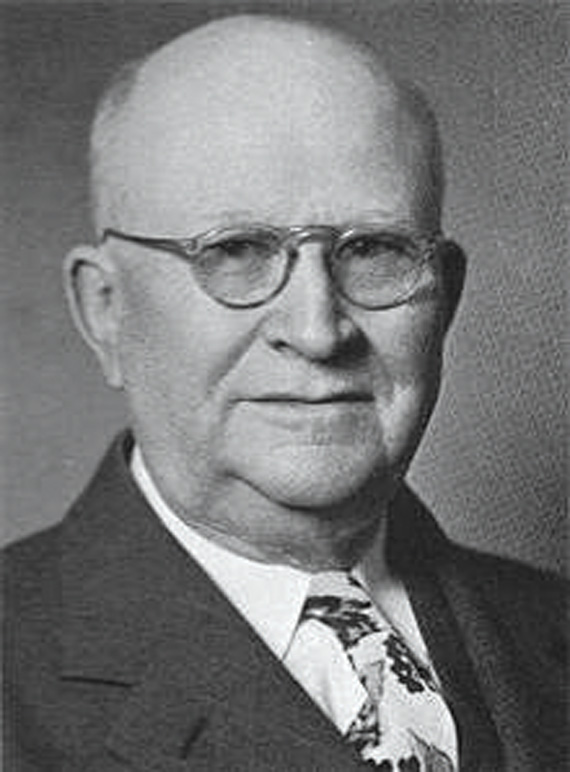
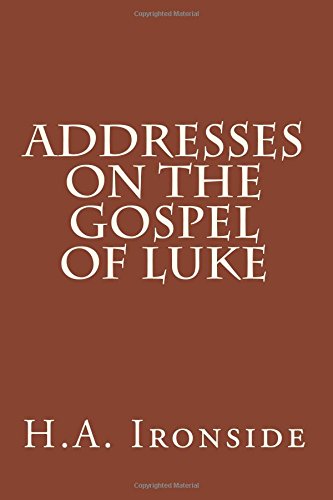
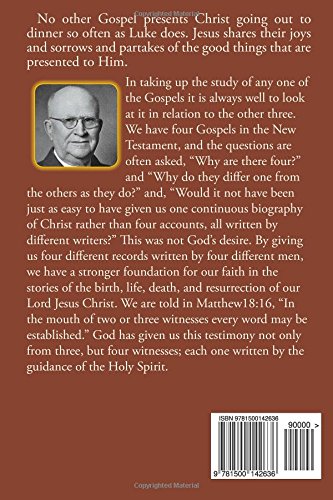
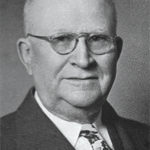
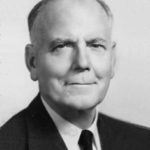

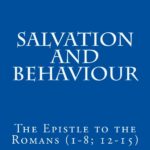
Reviews
There are no reviews yet.